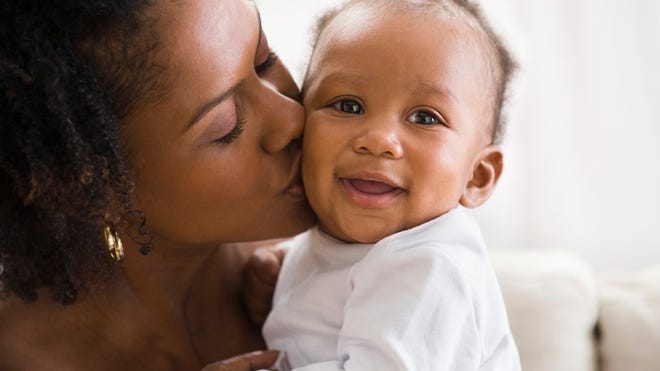Reports in recent years have shown that pregnant Black women in New Jersey not only experience more serious complications during childbirth but die at a higher rate than expectant mothers of other races.
Now a new study adds even more evidence of a wide racial gap in maternal care: Black mothers are having unnecessary cesarean sections in New Jersey at a much higher rate than Caucasian women, even when treated by the same doctor in the same hospital.
The 71-page report published last week by the National Bureau of Economic Research analyzed 1 million births at 68 New Jersey hospitals from 2008 to 2017 and found that Black mothers with an unscheduled delivery were 25% more likely to have an unscheduled C-section than white mothers.
The report suggested that doctors and hospitals were financially driven to perform more C-sections, because many of the unscheduled surgeries on Black women were performed only when there were no scheduled C-sections taking place. The average price of a C-section in 2020 was $17,103, compared with $11,453 for a vaginal delivery, according to the Health Care Cost Institute.
“These findings show that even the same doctors are treating Black patients differently,” wrote the authors — a trio of economics professors, Adriana Corredor-Waldron of North Carolina State, Janet Currie of Princeton and Molly Schnell of Northwestern.
The report drew concerns from first lady Tammy Murphy, who has pushed for maternal health care reforms.
“This study confirms the historical, large-scale statistical racial disparities in delivery methods, without a correlation to medical risk,” Murphy said in a statement. “This research is critical to supporting the ongoing development of new initiatives that will continue to make a difference for families in New Jersey.”
Improvements in racial disparities
More recent data suggests some improvements in the racial disparity, said the New Jersey Hospital Association. The C-section rate for Black women declined 5.3% between 2018 and 2022, said Cathy Bennett, CEO of the organization.
“Maternal health teams in New Jersey have made racial disparities in birth outcomes a central focus of their work, and it is yielding results,” she said in a statement.
The findings add to a growing body of research in recent years that found:
- Expectant Black mothers or those who have recently given birth are dying at a far greater pace than other races. A report published last year in the Journal of the American Medical Association found that the rate of Black women dying while pregnant, during delivery or one year after giving birth doubled over two decades. Black women were far more likely to die during pregnancy or childbirth, with a rate of 110 deaths per 100,000 in the last decade compared with 19 for Asians, 27 for Hispanics, 30 for Caucasians and 42 for Native Americans in New Jersey.
- Despite progress made to improve maternal health in New Jersey, Black women are more likely to develop serious complications than other races, including hypertension and hemorrhaging, said a report last year by the New Jersey Hospital Association. Black mothers also were also more likely to get a C-section — 29 per 100 births — than Caucasian women, at 23 per 100 births, the report showed.
- Black mothers were more than seven times as likely as white mothers to die from pregnancy-related complications, said a Robert Wood Johnson Foundation report published last year. Black infants are more than three times as likely to die before their first birthday than white infants.
- Black residents are more likely to be stricken with and die from a host of diseases than white, Hispanic and Asian residents, state Health Department data shows.
Medical staff must take bias training classes
The issue is so much in the forefront that state regulators in July ordered doctors, nurses. midwives and any other medical staff members who provide maternal care to take bias training classes.
New Jersey has long had some of the nation’s highest rates of C-sections across all races. About a third of births were via C-section in 2016.
Suggested causes have ranged from more women giving birth at older ages to financial and liability considerations.
New Jersey has no limits on compensatory damages in medical malpractice cases. Some health advocates say this may force doctors to veer toward a C-section when there is even the slightest hint of a possible complication with vaginal delivery.
The rate of C-sections has dropped in New Jersey from 32.31 per 100 births in 2016 to 27.77 in 2021 after hospitals began a program in 2017 to tackle maternal health problems.


